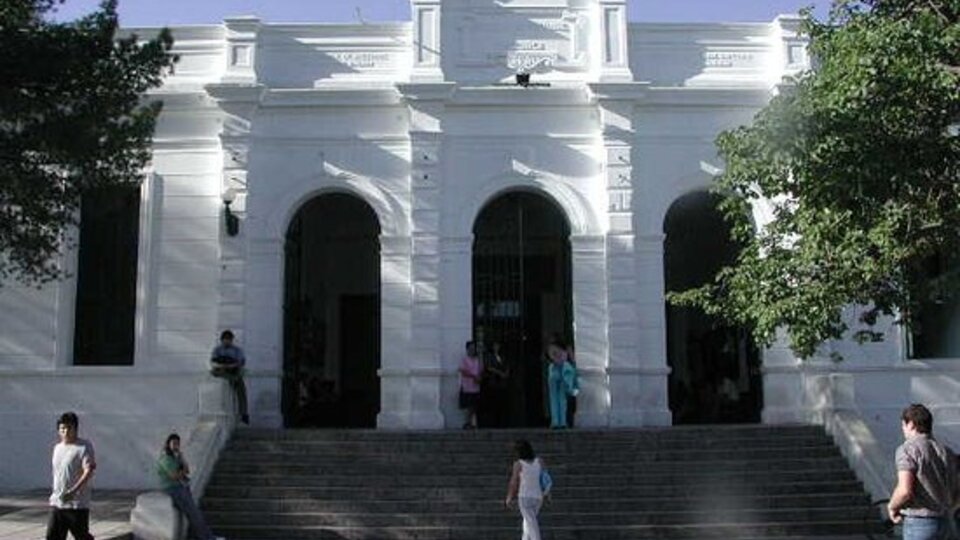
After the announcement that through a court extension finally Catamarca will be able to count on the medical career on his academic offer, Catamarca / 12 consulted Mateo Martínez, dean of the National University of Tucumán, On how the process will be until the province can finally start training its own medical professionals.
The authority of the House of High Studies of Tucuman, explained that before the pandemic they had already traveled to Catamarca and had interviewed Lucia Corpacci and representatives of the Medical College, Therefore “There were already very rich preliminary conversations, that’s why this fills us with enthusiasm”, Has valued.
He confirmed that the first step for the aulic extension was taken, but that it still requires the authorization of the National Commission for University Evaluation and Accreditation (CONEAU) and the Ministry of Education of the Nation.
explains that “This crystallizes a whole process; we have been talking to Catamarca for some time about the desirability of having a greater training of undergraduate and postgraduate doctors”. On the subject he added that “there has been a lot of discussion, there are even medical residencies that we endorse in this province, what we have signed now is that the last two years of the degree, which is the mandatory final practice , it can be done in Catamarca, “he said. in this way, students from the province will be able to return to the province to complete their internship.
“We believe it is a very important step forward, because undergraduate training in a risk race like Medicine is not a minor issue, it involves an appropriate educational structure. Political will makes us see the process as favorable,” Martinez noted.
Which includes the signed agreement
From October 2022, students in the last two years of the UNT Medical degree will be able to study sixth and seventh year in Catamarca “as long as the government of Catamarca ensures that the learning spaces are suitable for young people “, explained Martínez.
In a second stage, the teachers of Catamarca will be prepared so that when the race starts – the widest probability is that it will be from 2023 onwards – there will be trained staff. “We always started in the same way, we prepare the local teachers; a teacher from Tucumán takes charge of a subject, and little by little, as the local teaching capacities are developed we retire. It is a slow process; in Salta this process took six years, and today they already have their own curriculum and their own career “, he commented.
processes
The dean explained that until ten years ago Tucumán had the only state university in the northwest to have a degree in Medicine: “I was dean between 2010 and 2011, and we traveled the north trying to be interested in the need that the friendly provinces train their own medical professionals, I have teaching friends here who are from Catamarca; then the provinces suffer from the absence of trained people, “he said.
“The processes are very slow. Political will is there, and this is very important as students have to carry out their training practices in hospital spaces, during undergraduate and postgraduate training, ”he said.
formation
To start talking about implementing the degree in Catamarca, the dean explained that they will start training local professionals interested in teaching medical education. There will be a pre-course for this. “Only from there can we start talking about the dictation of the race, which could be from next year, which I see very, very difficult, it will surely stay for the next year,” evaluated. As for teachers, he explained based on experience with Salta that some cases are contracted by Tucumán and in other cases the provinces.
demand
For the professional “It remains to be seen what will be the demand of the population of Catamarca”. He explained that they are already working on extension programs with Santa Maria, Where 18 Catamarca students are on scholarships and part of the “Protected Career” program, which includes benefits such as free admission courses.
“The 23 medical careers in Argentina lost nearly 17,000 graduates between 2020 and 2021 because there are no places for them to do internships due to the pandemic,” he lamented. “This is going to have an impact on the health system in a few years. Many rural hospitals already have trouble replacing retiring doctors or on-call doctors,” he said.
Dialogue with the UNCA
He commented that “between 2010 and 2014 we had a dialogue with the University of Catamarca and we would very much like to strengthen this link, but it depends on the institutional decision of this House, which we absolutely respect,” he said. “The training of any university degree is a privilege of the public university, if in a province there is no career, it needs the state,” he pointed out.
He further said that the effective implementation of the race in Catamarca required the political will of the ai, with regard to dialogue with the local university he said: “We will receive them with open arms.”